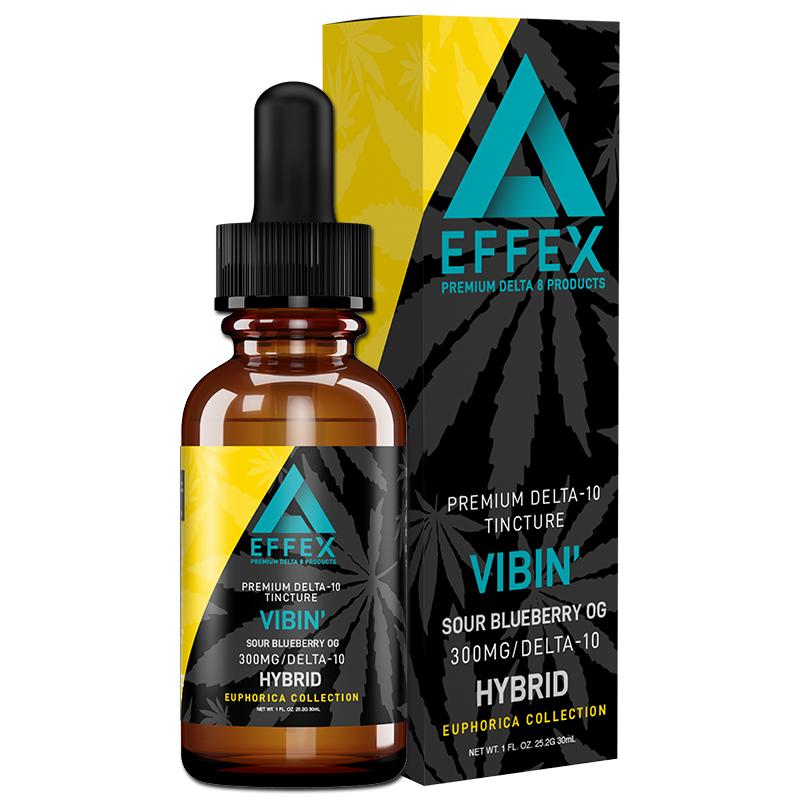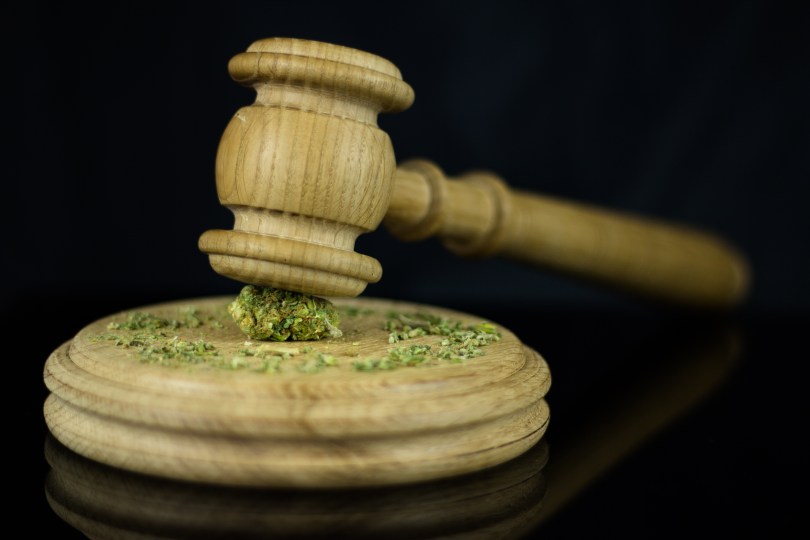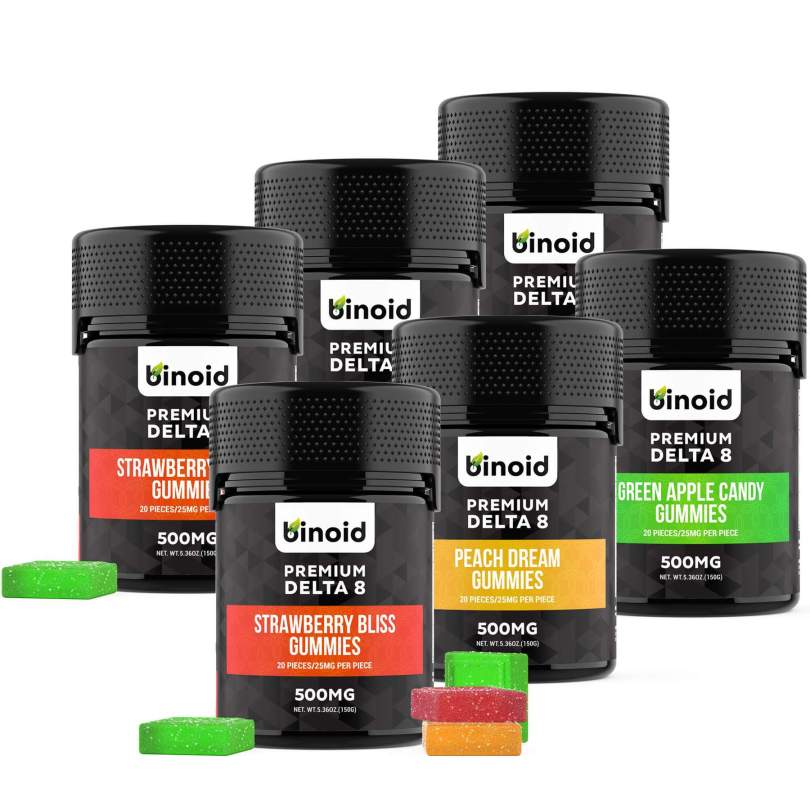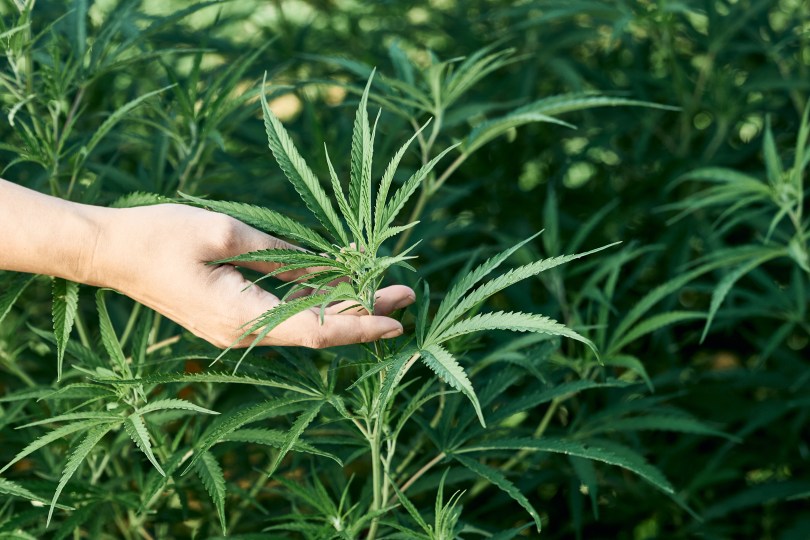Delta-8 THC has been the center of controversy in the United States. While the US government did officially illegalize it, and while many states are following suit independently, Texas is not. In fact, Texas is the first state to officially say ‘no’ to delta-8 THC illegalization.
We’ve known that delta-8 is pretty awesome for a while now. After all, it’s another form of THC that has benefits like less psychoactive high, no anxiety or paranoia produced, a clear-headed energetic high, and no couch locking. We’re not the only ones who think that either, as Texas just said no to delta-8 THC illegalization. We’re dedicated to bringing you the best products available, so take a look through our Delta-8 THC deals and give this new-fangled version of THC a try.
Recap of what’s been going on in Texas
Last month, I reported on four different cannabis-related bills that were making their way through Texas’ Congress at that time. When I wrote the article, none of the four bills had passed. All bills represent a general loosening in Texas law toward cannabis and cannabis crimes. The following is a brief breakdown of the initiatives in Texan government:
HB 441: This bill would decrease criminal penalties for possession of small amounts of cannabis. Under this new legislation, up to an ounce would be only a class C misdemeanor with no jail time attached, or loss of driving license. While this bill would purportedly terminate the threat of being arrested for small-time possession, it also indicates that in order for offenders to take advantage of this, they’d have to plead no-contest to a charge (meaning there is one), which would then defer the case for a year.
NEW: DELTA 10 THC

No criminal record would be attached if a year is completed without incident. All of this indicates that this is not a decriminalization, as it implies a defendant will still face criminal charges if this exact procedure isn’t followed. Defendants would also be required to pay fines up to $500.
HB 1535: This bill would expand the medical cannabis program in Texas by including all cancer and PTSD patients. In an edit of the bill, chronic pain was left off, even despite growing issues with the opioid epidemic. A provision to allow Department of State Health Services to add qualifying conditions as needed was removed as well. And so was a provision that would have increased the THC cap to 5%, instead of 1%.

HB 1802: This isn’t actually a cannabis bill, but since both cannabis and psychedelics are enjoying new legislative freedoms, I thought it should be included. This bill would institute a requirement of the state to study psychedelics, specifically for the treatment of veterans. The bill makes specific mention of MDMA, psilocybin from magic mushrooms, and ketamine (the close cousin of the already FDA approved esketamine – Spravato.) Passage of this bill would put the responsibility of the research jointly between the state of Texas and Baylor College of Medicine.
HB 2593: This bill would also lower penalties for cannabis, but this time centered on THC concentrates and infused products. Both are currently felonies right now, but this bill would enable the possession of two ounces as a class B misdemeanor – the same penalty for flowers. This bill came with another provision which was not originally there, but which was added on by the Senate after the House approved without it. This provision creates a definition for ‘total THC’, which then automatically includes all isomers. This provision would therefore mean a criminalization of delta-8 THC. This update sent the bill back to the House to either approve, or create a committee to come to an agreement.
Update on these bills
HB 441 cleared the House – as per the last article, but still has not entered the Senate. HB 1535 has officially cleared both the House and Senate, and was sent to the governor on May 31st, 2021. It does not appear to have been signed into law just yet. HB 1802 ALSO passed both the House and Senate, and was sent to the governor’s office where it awaits signing. And last is HB 2593, which is an interesting story.
As mentioned before for HB 2593 – the bill that would lower penalties for concentrates and extracts, but which would also criminalize isomers like delta-8 THC, the provision that would illegalize delta-8 THC was added by the Senate after the House already passed the bill. And this meant the House had to either accept the revisions or create a commission to work on a resolution. The House decided on the latter, with the last action taken that the House would convene a conference committee to form a resolution.

The latest news to come out about HB 2593, will sure make those in the delta-8 industry take a sigh of relief. The House was not happy with the ‘total THC’ provision which would illegalize delta-8 THC, and removed it from the draft. The House conference committee then approved it once again without this provision in a 95-44 vote. However, the Senate did not vote on it again, as the legislative session ended, meaning the bill was adjourned sine die. This term means that since the congressional session ended with no new date given, that all unfinished cases end with it. Thus HB 2593, was killed.
Though this was a positive moment for those who did not want delta-8 to be more heavily restricted, it also means that sanctions have not been lowered for THC concentrates and extracts which therefore remain felonies. The dying of this bill is only partway positive. The other part is actually a major setback.

And let’s not forget HB 3948
While it wasn’t mentioned in my last article, HB 3948 is yet another bill that would have criminalized delta-8 THC. This bill missed its deadline just like HB 2593, and died the same way last month. HB 3948 related to “the production and regulation of hemp and consumable hemp products; providing administrative penalties; creating a criminal offense.” This bill represents another case where the senate added a provision which slowed things down, and which would have criminalized delta-8 THC by attacking it as a synthetic, as well as limiting delta-9 usage.
A conference committee was called (as was done for HB 2593), and the issue of delta-8 was one of the main motivators to cause gridlock. No resolution was met in time, and the bill died when it didn’t meet the deadline, meaning no update to the hemp program will be made. It also means that two times last month Texas said ‘no’ to a delta-8 THC criminalization.
What is delta-8 THC, and why the fuss?
In short, delta-8 THC is a double bond isomer of delta-9 THC, meaning they share the same chemical formula, but have a slightly different configuration of atoms, specifically the placement of a double bond. Delta-8 is naturally occurring and is produced from the oxidation of delta-9 when it comes into contact with oxygen. Delta-8 has been associated with not producing the anxiety and paranoia that standard delta-9 is often known for, and it’s said that delta-8 creates a high 2/3 the intensity of delta-9. Delta-8 is also known for producing a high that’s clear-headed, leaving users with more energy, and less couch-locking effect. All of this makes delta-8 sound pretty good.
Delta-8 came into prominence with the advent of the 2018 US Farm Bill, which made it appear that delta-8 fit into a loophole that allowed the legal sale of THC. This, because delta-8 can be sourced from the ‘legal’ delta-9 of hemp (delta-9 content no more than .3%). However this was essentially not the case, with several legalities making delta-8 less legal than what people thought.
Best Delta 8 Deals:

A lot of this has to do with the Federal Analogue Act; the cap of .3% THC in flowers, processing, and final products, which applies to delta-8 as an isomer of delta-9; and its definition as being a possible synthetic due to human processing help, which would mean it was never under the definition of hemp.
Though delta-8 appears naturally, this is in tiny amounts, leading to the need for human processing help, which has been taken to mean synthetic by many government bodies at this point, including Colorado, which along with other states, independently illegalized delta-8. As a final nail in the coffin, the US government recently added delta-8 to the Controlled Substances list as an alternate name for ‘tetrahydrocannabinols’ which sits in Schedule I, under criminal code 7370.

Colorado, when it illegalized the compound, made no bones that it was in regards to health dangers related to processing methods, and NOT the compound itself, which has never showed medically to be dangerous. This implies that simply regulating the processing of the compound would be the more ideal way to go. My guess is that there is a pharmaceutical push to keep delta-8 out of the mainstream, until it can be formulated into a pharmaceutical product for sale. Just a thought.
Texas is the only state thus far to show some kind of understanding that simply illegalizing delta-8 is not necessarily the way to treat it. And thus, in a state with no recreational program, Texas has actually said ‘no’ to a concrete delta-8 THC criminalization. And this despite its federally illegal status. Texas can’t legalize delta-8 without legalizing recreational cannabis altogether. So, the only thing it did, was to not officially criminalize it. This is still progress.
Conclusion
So, there you have it, small wins for delta-8 THC in the most unexpected location of Texas. Who’d have thought that a state still refusing a recreational cannabis program, would work this hard to keep delta-8 from complete criminalization. Well, that’s what’s been happening so far. Texas has legislatively said ‘no’ to delta-8 THC criminalization. At least for now.
Hello and welcome. You’ve reached CBDtesters.co, your hub for the most relevant and up-to-date cannabis-related news globally. Join us every day to stay in-the-loop on the ever-changing world of legal marijuana, and sign up to get our newsletter, so you never miss a story.
Resources
Texas Ready to Pass Marijuana Decriminalization Bill
Colorado Just Banned Delta-8 THC! Who’s Next?
What is Delta 10 THC & does it gets you high?
The Delta 8 Weekly Newsletter (All you need to know about Delta 8 thc), the Best Delta 8 THC Deals and the Best Delta-10 THC deals
Vermont is the newest state to ban Delta 8 THC The US Government Secretly Illegalized Delta-8 THC
The Question of Delta-8: Recreational or Medicinal?
Pharmaceutical Psychedelics – What’s Already Legal and Available
Disclaimer: Hi, I’m a researcher and writer. I’m not a doctor, lawyer, or businessperson. All information in my articles is sourced and referenced, and all opinions stated are mine. I am not giving anyone advise, and though I am more than happy to discuss topics, should someone have a further question or concern, they should seek guidance from a relevant professional.

